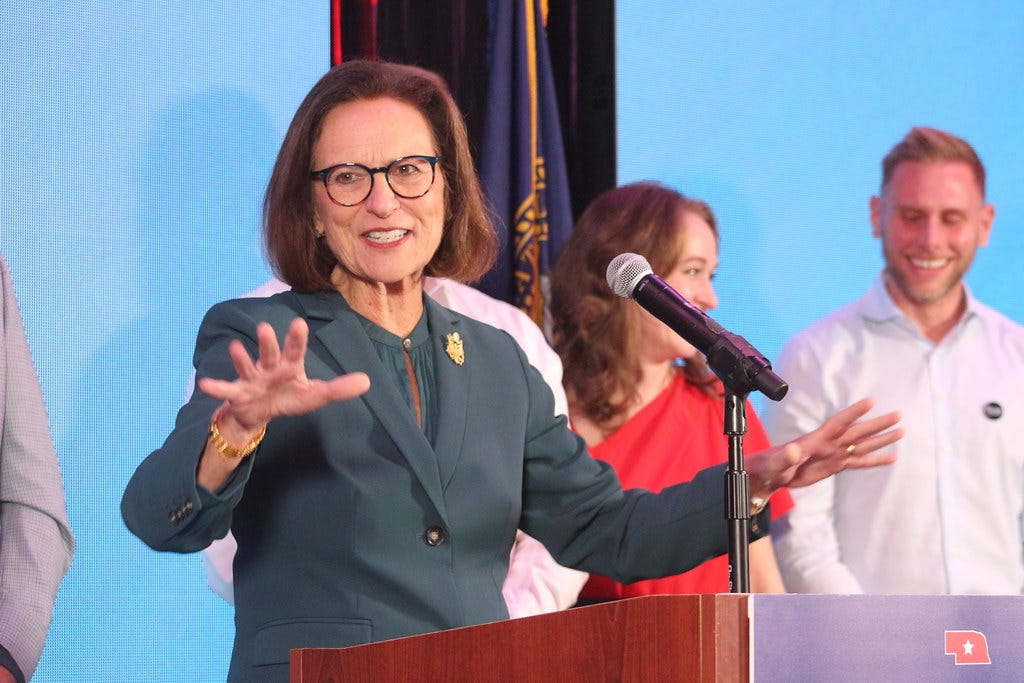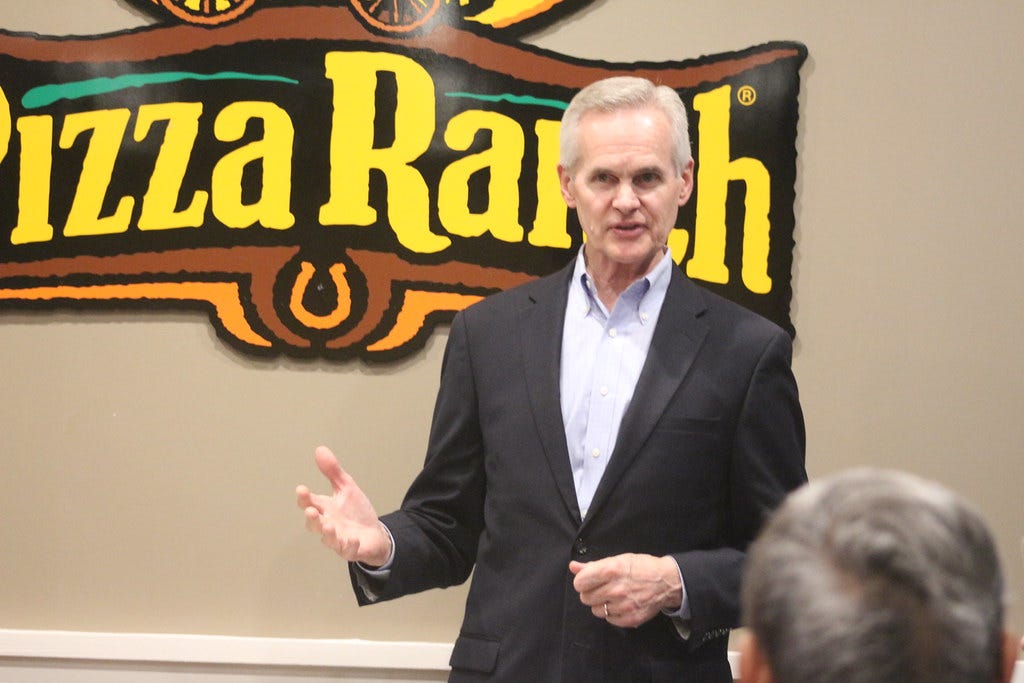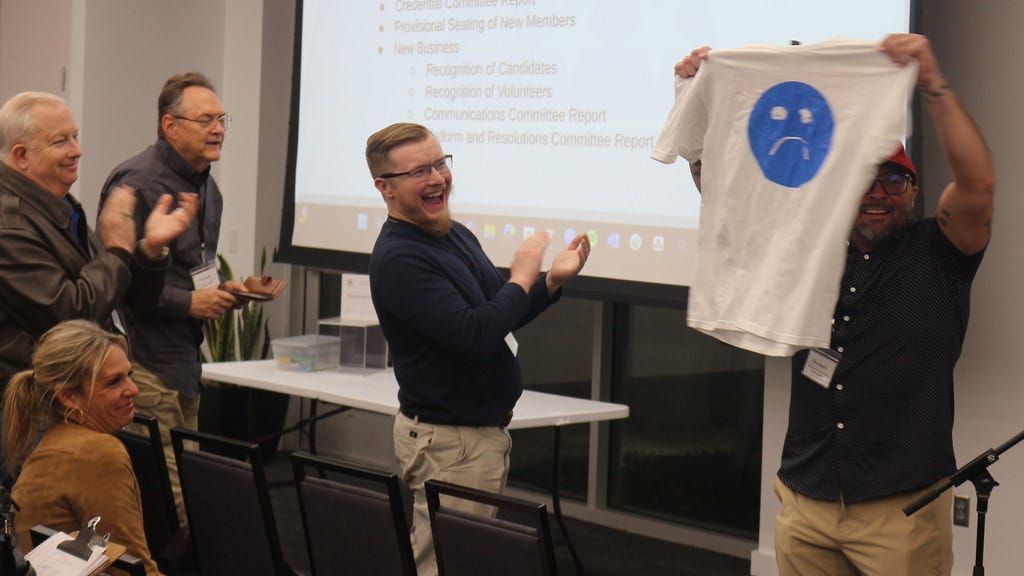Tuesday was a historic night for Republicans. Donald Trump staged what’s being hailed as the greatest comeback in political history, going from a defeat in 2020 followed by a second impeachment to returning to the White House.
Trump performed better across nearly every demographic in this election, winning a majority of Hispanic men and white women according to exit polls. The biggest surprise, according to Omaha political consultant Kyle Clark, was the first-time voters who broke for Republicans. “They’re waking up. Young people are up and pushing back against the woke culture because those young people, those first-time voters, they broke our way. They broke the Republican way, and nobody saw that coming.”
And while Omaha’s “blue dot” persisted, Joe Hagerty, Nebraska Field Director for the Republican National Committee, reported that they had been able to trim the Democrat margin of victory from 22,000 in 2020 to around 11,000. Similar gains in blue states helped hand Trump not just a victory in the electoral college, but a Republican win in the popular vote for the first time in 20 years.
Fischer Victorious
It was also a good night for Republicans in the US Senate, where they retook the majority by several seats. The Senate race in Nebraska was unique, as two Republican incumbents were on the ballot. The race between Deb Fischer and Dan Osborn was much tighter than Pete Ricketts’ race against his opponent, Preston Love Jr. This was likely due to a large influx of campaign dollars for the Osborn campaign from outside Nebraska.
According to Open Secrets, Love raised less than $250,000 for his entire campaign, while Osborn had nearly $8 million in campaign funds and over $20 million in outside spending. In addition, over 90% of Osborn’s contributions were from out of state, with more money from cities like San Francisco, New York, Washington DC, and Boston than from Omaha. Deb Fischer made a point to highlight this during her victory speech on Tuesday.
“Nearly $30 million — that’s the amount of money that out-of-state Democrats spent trying to buy a Nebraska Senate seat,” Fischer said. “I can tell you that they wasted the money, because as it turned out, no matter how much the media and the Democrats wanted it to happen, Nebraskans still vote for candidates who share their values.”
Things looked good for Osborn as the night began, with numbers coming in from Lincoln and Omaha. Then as returns came in from Western Nebraska, his lead evaporated, and Fischer was declared the winner by eleven o’clock.
Pro-Life Amendment
Late-night results also turned the tables for Nebraska’s abortion initiatives. Shortly after the polls closed, it appeared Nebraska would enshrine the right to abortion into its state Constitution by passing initiative 439, which was ahead by tens of thousands of votes at the end of the night. Then overnight, the results came in from rural Nebraska, and the results had flipped. Pro-life initiative 434 had passed instead, and a majority of voters had rejected 439.
“I thought the world was going to come to an end. We were way, way, way down,” said State Auditor Mike Foley. “And then all of a sudden, slowly but surely, the votes roll in from central, western Nebraska, and we those things flip. 439, the pro-abortion initiative, was way up, by tens of thousands of votes. It ended up losing by 25,000 votes. Where did those votes come from? Not Lincoln, not Omaha. They came from central and western Nebraska. Those people are the salt of the earth, and they don’t want abortion. They’re very pro-life people.”
In the wake of Roe v. Wade being overturned, numerous other states had passed initiatives to restore abortion rights into their state Constitutions. Nebraska, however, is now the first in the nation to do the opposite, instead passing a Constitutional amendment protecting the unborn.
“On election day, life was on the ballot, and praise God, life won,” said Karen Bowling of the Nebraska Family Alliance. “It was a significant and historical day in Nebraska.”
Post-Election Analysis
While Republicans were happy with the outcome at the state and federal level, some local elections left members of the Sarpy GOP discouraged. Lisa Schonhoff had flipped a seat on the State Board of Education, but Linda Vermooten lost her race, leaving the board 4 to 4 conservative. Bob Andersen was able to take a legislative seat from Jen Day, but Felix Ungerman narrowly lost to Victor Roundtree by less than 200 votes. Justin Curtis and Pat Beckham won school board seats in Millard and Bellevue, but several others lost, including Ed Weniger in a highly-contentious race in Papillion.
Even as provisional ballots are still being counted for 2024, all eyes are now on the 2026 midterms, with more work to be done ahead to bring gains from the top of the ballot on down. At the Sarpy GOP meeting on Thursday, Aaron Gilliland put forth a motion to create a committee to do just that.
“Despite key wins, we must improve on this year’s outcomes,” Gilliland said. “We saw excellent performance of candidates across the top of the ballot, but we were not able to transfer some of that excitement to the lower ballot.”







See Charles Kirk interview at https://rumble.com/v5nbe6q-how-trump-won-with-charlie-kirk-and-part-two-of-megyns-biggest-losers-of-th.html
I regret to disagree with Kyle Clark's comments. Many of us who have followed voter registration drives noticed the tilt to Republicans by young people and first-time voters about 6 to 8 months ago. This became more apparent with candidate Harris. Merely her laughter caused people to doubt her capabilities to handle difficult issues but also, she simply was not engaging the public. At the same time, Trump, being shot, and being shown at McDonald’s and being in a garbage truck, showed his true character and where his heart is at. Trump, unlike many Republican candidates, bypassed the national news media and was happy to talk to podcasters of his goals. At the same time, Scott Pressler was boosting Republican voter registrations in PA.
Unfortunately, Nebraska does not do voter registration drives. If Republicans could gain 3,000 registered voters in Omaha, and 2,000 registered voters in Lincoln, it would be easier to run Republican and conservative candidates.